
Oct 29, 2019 | Baseball, Be The Best News, Coach Profiles
JT Maguire
MiLB Player Development
Cleveland Indians
So often in life, we get an idea that pops into our mind and just keeps on brewing. We think about it, dream about it, but it doesn’t really take hold until we get outside affirmation. When we do, that’s when we go for it, full-force, never letting go until we get where we were meant to be.
For JT Maguire, the coaching seed was planted his junior year of college. While picking the brain of his assistant baseball coach, JT was told he had the drive and characteristics that are essential for success as a coach. Those casual conversations were what shifted JT’s focus and propelled him toward a coaching career.
JT’s coaching journey began at The Park School of Baltimore, a private high school in Maryland. Two years and one state championship later, he took an assistant coaching position at his alma mater, North Harford High School, about 30 miles up the road. From there, he landed at Harford Community College, working on the side as a personal trainer to make ends meet.
JT left HCC for a volunteer assistant job at Wofford College, a Division I school in Spartanburg, SC. He stayed at Wofford for two years, then followed Wofford’s pitching coach to Lander University in Greenwood, SC. JT became the recruiting coordinator and worked there another two years until he was hired by the Cleveland Indians.
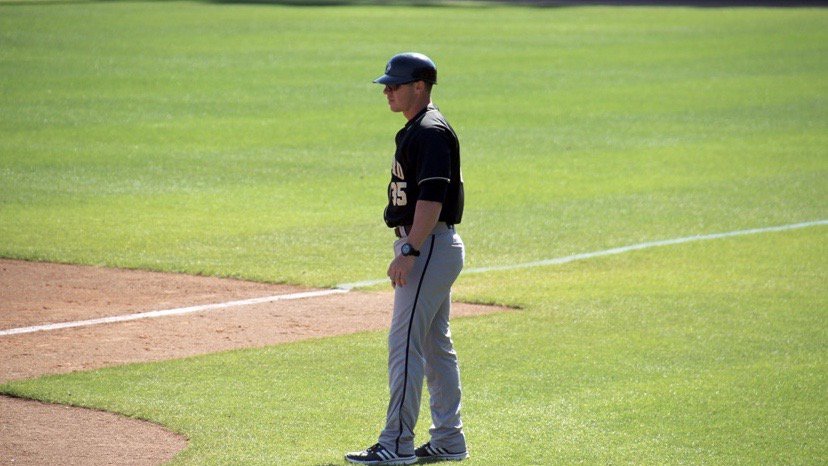
Along the way, JT admits he’s had his share of coaching disasters, mostly stemming from making adjustments based on what he thought he knew, rather than figuring out the why behind what was happening. Baseball is a game of constant learning and listening and watching, and assimilating qualities of those you most admire.
Todd Interdonato is one of those coaches JT most admires. While working under him at Wofford College, JT realized Todd was the kind of person he most wanted to emulate. The kind of coach who doesn’t have one single thing that stands out as the “it” factor, but rather a million little things that make him someone everyone wants to be around. The kind of coach who builds a team every player wants to be part of.
The Cleveland Indians’ team culture, from the big leagues all the way down through the minors, falls under the acronym, G.R.I.T., which stands Growth Mindset, Routines, Individual Plans, and Team First Approach. Its “we’re all in this together” culture generates a positive player-coach relationship better than any other JT has seen.
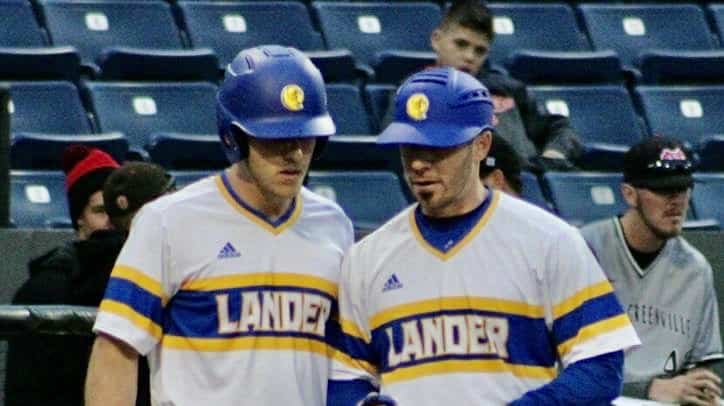
But, as far as specific coach qualities, JT believes there is nothing more important than trust. If a player doesn’t trust you, you’ll never form a true bond. When a coach is in the game for himself, players smell it immediately and are turned off. When a player knows that you are in it for them, and their career, that trust builds a strong and lasting relationship.
When those relationships go beyond the diamond, that’s when JT knows he’s made a significant impact on a player. A text announcing the birth of a baby, a player getting drafted or promoted to the next level, a request or a reference letter, or a call from a former player just wanting to catch up.
That’s when JT Maguire knows he’s done his job.
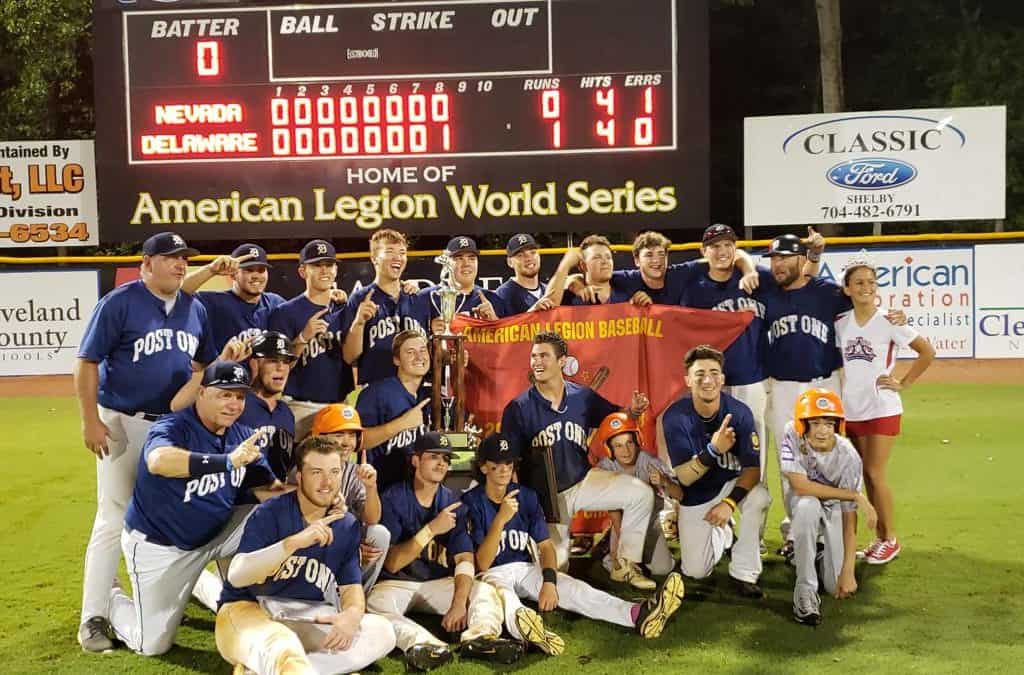
Dec 20, 2018 | Baseball, Coach Profiles, The Best Stories
Brent Treml
Baseball Pitching Coach
University of the Sciences
Philadelphia
How did you get your start as a coach?
Honestly, it all started as a favor. Back in 2010, my alma mater, Salesianum High School in Wilmington, DE, needed a coach for the freshman baseball team. I thought I’d be one-and-done, but after that season in which we went 16-0, I was hooked. I stayed for nine years.
During that time, I also coached American Legion baseball. Under my four-year tutelage as head coach of Delaware Post 1, we won one American Legion National Championship, a state championship and two state runner-up titles.
I have just begun my collegiate coaching career as pitching coach at University of the Sciences in Philadelphia.
What do you love about coaching?
I love the camaraderie that exists between coach and player and coach to coach. I love the highs and lows that come with working with players every single day. And, most of all, I love seeing the players buy into the culture we are trying to create and seeing a bunch of individuals turn into a unified force by the end of the season.

What is your best coaching memory?
The easy answer is winning the National Championship in 2018 or our first State Championship in 2017, both of which were filled with proud accomplishments and amazing moments. But, my personal favorite game was defeating Stahl Post 30 in the 2016 American Legion Semifinals.
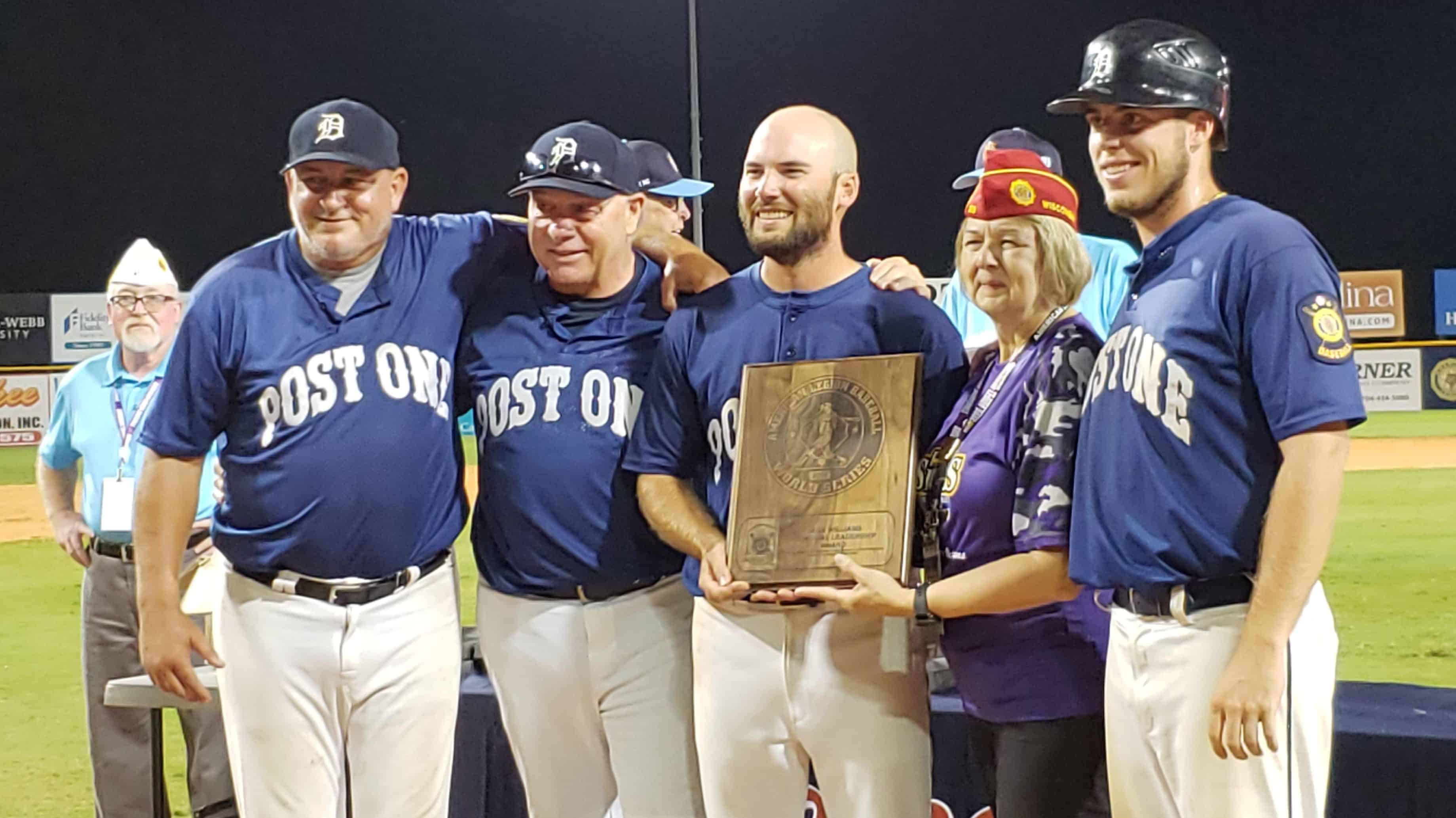
Stahl had long been the team to beat in Delaware and there was a passionate rivalry between us. That year we split our first four meetings before going on to end their season on their field in the playoffs. It felt like a changing of the guard; after the victory we were viewed as the top dogs in Delaware, having finally earned the respect we deserved.
What was your biggest coaching disaster?
This was a very public disaster. It actually made it to number three in Sportscenter’s Top Plays that night! We were playing Las Vegas in the American Legion World Series Championship which was televised on ESPNU. In an unbelievable pitchers’ duel, the game remained scoreless into the 7th and baserunners were at a premium. We were able to get a runner to 2nd with one out and our number three hitter at the plate. We decided to pinch run our fastest and youngest bench player to increase our chances of scoring.
Las Vegas pulled a trick pick-off play at second, ending our scoring threat and squashing our momentum in a game where every baserunner was like gold. The Las Vegas pitcher stepped off the mound and pump-faked a throw to second, with the middle infielders and outfielders selling the fake beautifully. Our runner dove back to the bag, as he should, got up and began looking for the ball and then to me as the third-base coach.
And here’s where I kick myself. I began yelling, “Stay on the bag!” while simultaneously pointing to second base. The stadium was so loud that the runner couldn’t hear me, but thought my pointing was signaling that the ball was in the outfield. So, he took off for third. Of course, the pitcher, who still had the ball, was able to get him out easily.
I should have had my hands up, showing the runner my palms in our universal “stay” signal, but instead, confused him by pointing to the bag instead.
But, even this disastrous story has a happy ending. We won the title with an eighth inning walk off!
How did you create your winning team culture?
The key to creating a winning culture is for everyone to feel like they have ownership in the success of the team. Coaches and players have to have open and respectful dialogue about lineups and strategies. It’s much easier for players to buy into what you’re doing as a coach if they understand why. Why is the lineup constructed this way? Why are we trying this offense move in this particular situation? Why is our pitching rotation lined up for these specific opponents?
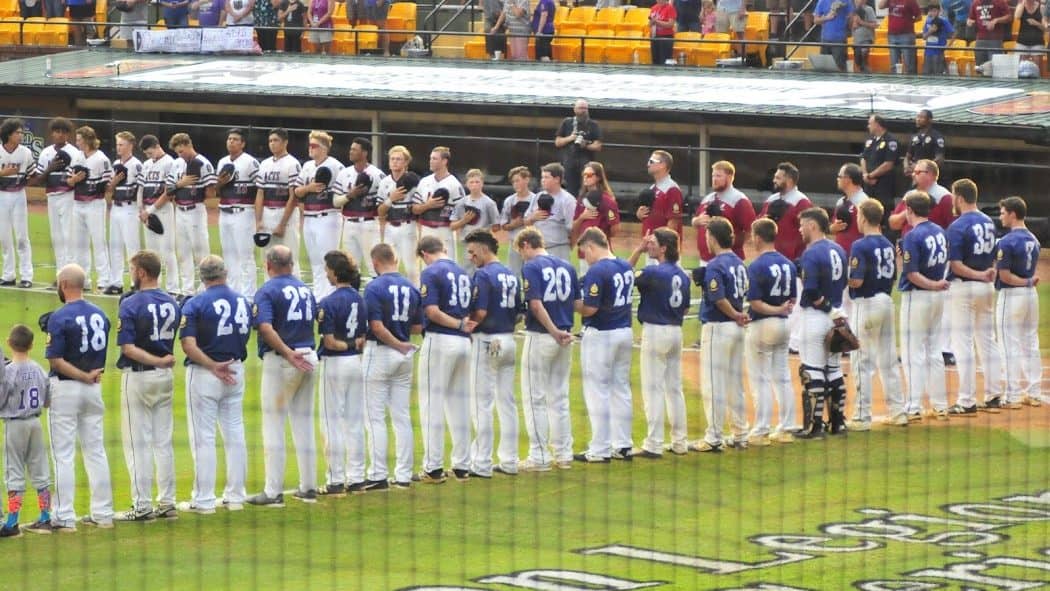
Bad culture breeds when we’re kept in the dark. And that goes both ways – for coaches as well as players. Players need to understand and accept their role, but coaches have to be willing to hear, and consider, what their team has to say as well. This give and take goes a long way toward building trust and confidence. It’s important for everyone to believe that decisions are made to make the team the best it can be, not for selfish reasons or to hurt feelings. To earn respect, you have to make sure your strategies are backed up with honest assessments and explanations for how your decisions will help the team win.
What is your personal coaching philosophy?
I want my team to be confident and aggressive. To know what goal they are going for. And to believe that nobody is in their way but themselves. I am an ultra-sticker during practice, focusing on the little details and not relenting until we have perfected what we’re practicing. I believe in making practice difficult, both physically and mentally so that the game feels easier.
On game day, I am ultra-positive. I never get on a player, unless there’s an obvious lack of effort involved. I want my players to feel little to no pressure during the game so they can be better prepared and more confident in making those instinctual, split-second decisions. I want to take the pressure off my players so they can place it on the opponent, giving us the advantage.
I like to talk about our goals in terms of visuals, like a dogpile. I will then come back to that visual throughout the year as we evaluate our performance. Are we taking steps toward the dogpile or away from it?
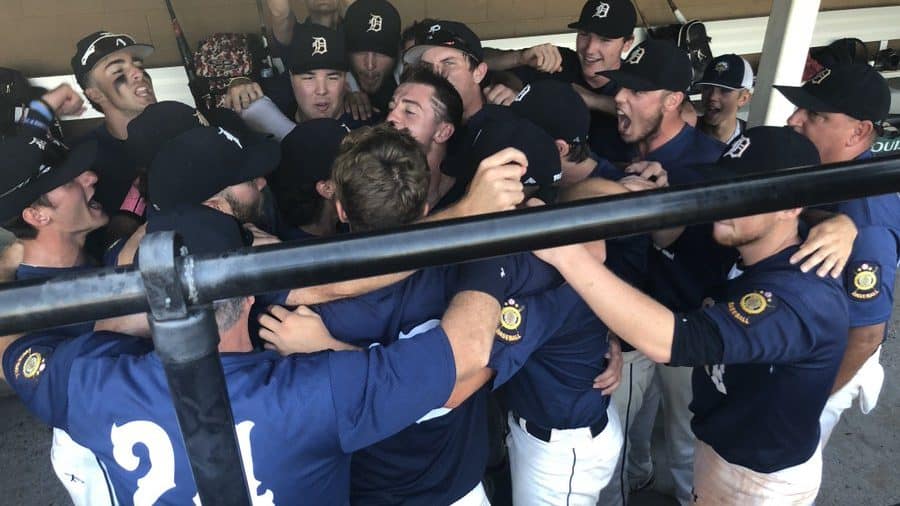
Is there one coach you particularly respect?
One of my biggest motivators and influencers was Dennis Walker, my high school coach at Salesianum. His practices were often stressful and difficult, but in preparing the team, he found a way to bring the team together as a by-product. He never let a teachable moment pass by. Ever. Though, he often left it up to us to figure out the lesson on our own. In my own coaching, I mimic this trait of his. Going off-script at times and doing something zany to let the players figure out the why on their own helps break up practice and make it less mundane. And the players more often than not, do learn the lesson on their own.
What are the most important qualities of a coach? Of a player?
To me, the most important quality of a coach and a player are the same. You have to be a sponge. This is a game of adjustments, so both coaches and players must be comfortable and willing to adjust to and try new things.
As a coach, you need to always be learning from other coaches, including your competition. You have to be open to discussing and debating with other coaches and share techniques and situations. Any successful coach out there has a strong network of other coaches with whom to bounce things off. I’ve yet to see a coach find success by existing in a silo. I, personally, have been blessed to coach under, with and against some brilliant coaches who have taught me so much and from whom I continuously “steal” ideas to add to my own coaching philosophy.
As far as players go, the worst trait you can possess is that of being un-coachable. As soon as you believe you know more than your coach you begin rejecting help and your growth in the sport is stunted. That doesn’t mean you have to blindly accept every decision or idea, but it does mean that as a player, you have to be respectful, evaluative and willing to try new things. Just like a coach!
Even Hall of Famer, Cal Ripken, Jr. went through countless different swings throughout his career as he adjusted to different pitchers. Think of it this way, if you were having great success, nobody would be trying to change you. Openness to new ideas is absolutely crucial to success whether you’re a coach or a player.
In keeping with the tradition that Be the Best is a convention created for coaches by coaches, we’ve asked for inspirations and stories from your contemporaries. Click here to share something about your coaching journey. Don’t worry about making it sound good — you coach the kids, we‘ll work the words.
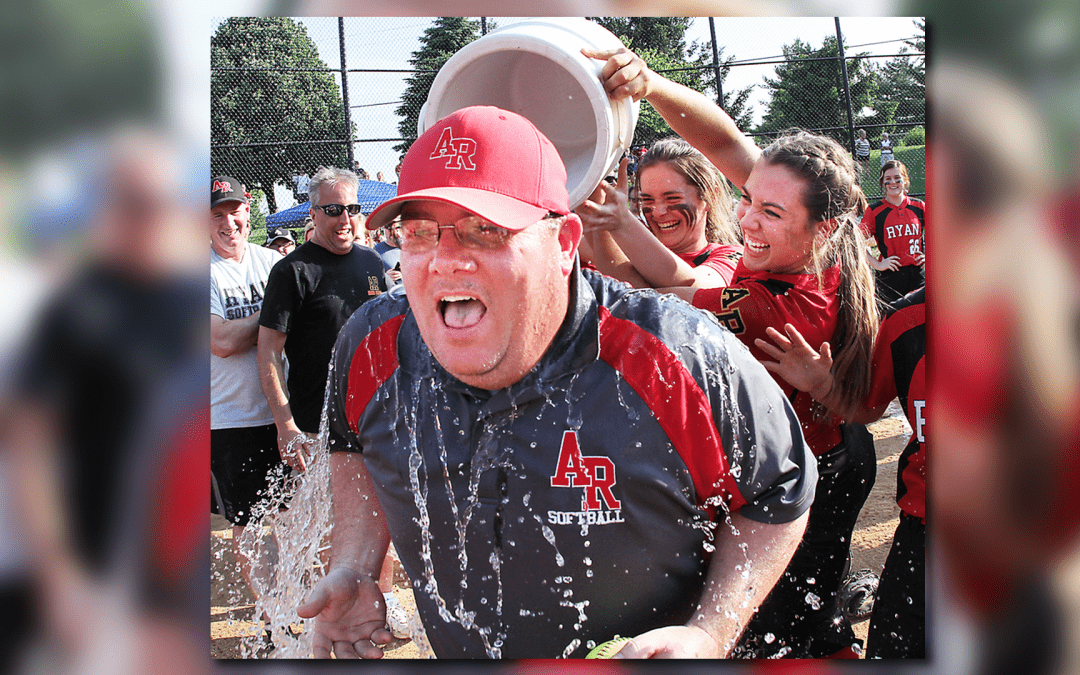
Dec 4, 2018 | Coach Profiles, Softball, The Best Stories
John Kidwell
Head Softball Coach
Archbishop Ryan High School
Philadelphia
As a coach, we all take chances. We move our slumping clean-up hitter to seventh and she knocks it out of the park. We switch our short stop to second and she turns an incredible double play. We trust a player to steal home and we win the game. We take chances that make our players shine, propel us to victories and make us, as coaches, look good.
Or, we take a chance in the semifinals, by starting a freshman pitcher over the sophomore who beat the same team during the regular season. And, we lose the game, remembering it as one of our all-time coaching disasters.
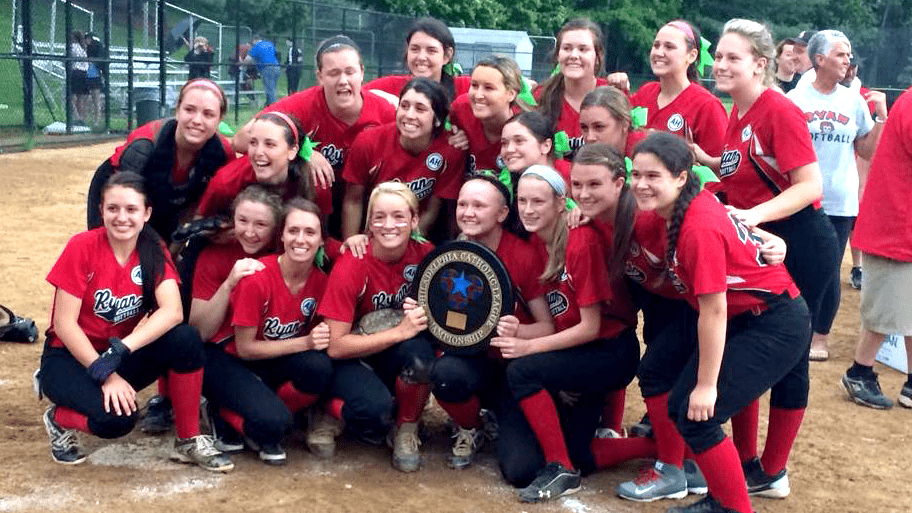
2014 PCL Champions
But, coaching has incredible highs. Like winning the Catholic League Championship in 2014 for the first time since 1995, in the same season that we lost a long-time, beloved coach. What a tremendous feeling it was to win that title, not just for the team, but for the coach we lost. And, the pride of knowing that winning four out of five league championships has just as much to do with chemistry and ego-checking than talent.
Growing up I had two younger sisters who played softball. I spent a lot of time watching them play and figuring out the game. By the time I got to college, I knew for sure I wanted to be a coach.
I landed the head junior varsity coaching position at Archbishop Ryan in 1992. In 1997, I was promoted to varsity as an assistant coach and in 2014 was named softball’s head coach after Andy Hafele passed away.
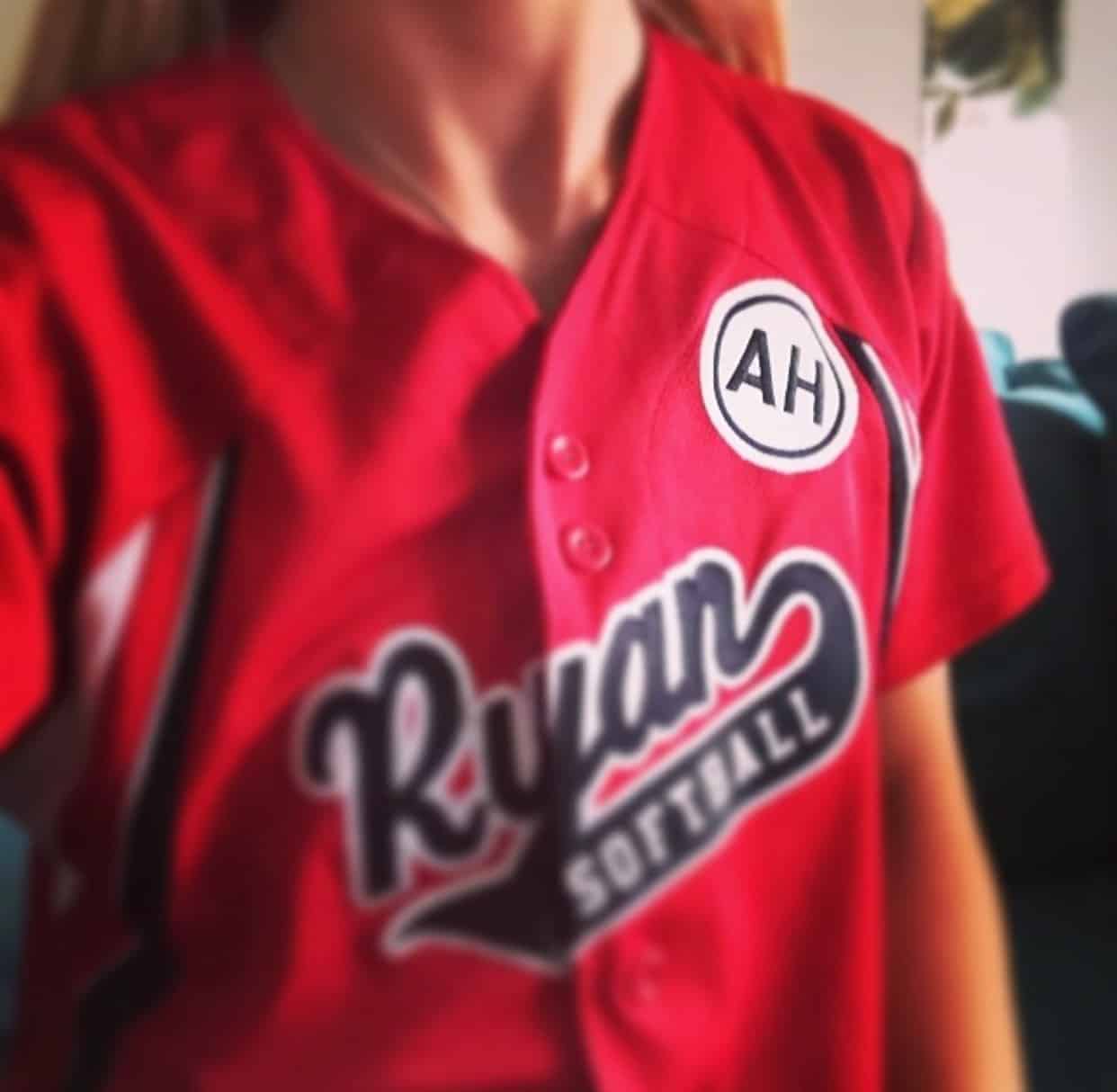
Patches worn during the 2014 season in remembrance of Andy Hafele
Andy and I coached together for 22 years. He was not only my mentor, but a huge influence on the coach I’ve become. He taught me how to run a program and how to establish a winning culture. Andy’s presence on the field is felt to this day and I can’t help but feel he is a big reason for our recent success.
I think about Andy when I consider the impact I have on my players and work hard on building the same respect and trust that he did. Our players are only with us for four years, but the physical and emotional transformations we witness from freshman to senior year is absolutely awesome. By the time they graduate from Archbishop Ryan and head off to college, they are ready for the world. It gives me great joy to know that I, through the game of softball, was able to help shape these players into the incredible young women they’ve become.

Andy Hafele Memorial Softball Field, Archbishop Ryan High School, Philadelphia, PA
In keeping with the tradition that Be the Best is a convention created for coaches by coaches, we’ve asked for inspirations and stories from your contemporaries. Click here to share something about your coaching journey. Don’t worry about making it sound good — you coach the kids, we‘ll work the words.
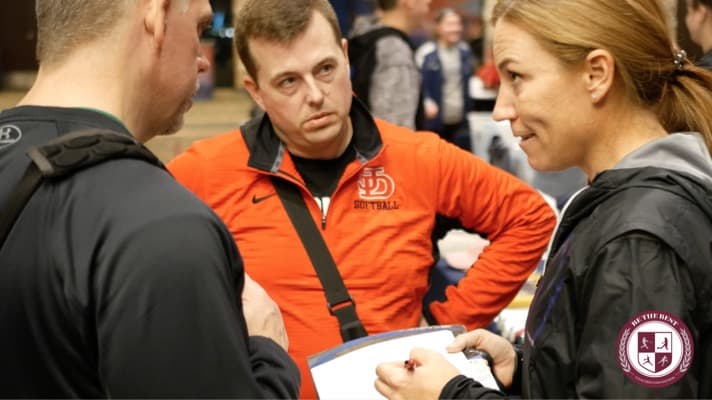
Nov 20, 2018 | Baseball, Softball
Coaches coach for many different reasons. Some want to give back. To the game, to the community, to the people who helped them along the way. Others are motivated by the thrill of competition, the emotion of the game and the camaraderie of the team. And some want to propel their players to the next level, watch them succeed and have a positive impact on their lives.
But the bottom line is, coaches coach because it’s fun.
And that’s why Be the Best adds FUN to the line-up.
Ask anyone who’s ever been to the convention. It’s not about listening to lectures from top college and professional coaches. It’s not about one-sided dialogues and technical presentations. What makes Be the Best so great is the natural interaction, the candid discussions and the back-and-forth sharing of skills, ideas and stories.
You may find yourself exchanging emails with one of the most celebrated coaches in college softball, drinking a beer with an MLB coach or chatting over coffee with a professional player. Be the Best speakers remember when they, too, were making their way in the baseball and softball worlds and genuinely want to do what they can to enhance your personal journey.
Don’t miss the ball on this one. We promise that Be the Best is more than instructive. More than informative. It’s down-right fun!
Registration is open NOW!
Baseball Coaches’ Convention
Thursday, January 10 – Saturday, January 12
Make your hotel reservations NOW!
Softball Coaches’ Convention
Thursday, January 17 – Saturday, January 19
Make your hotel reservations NOW!
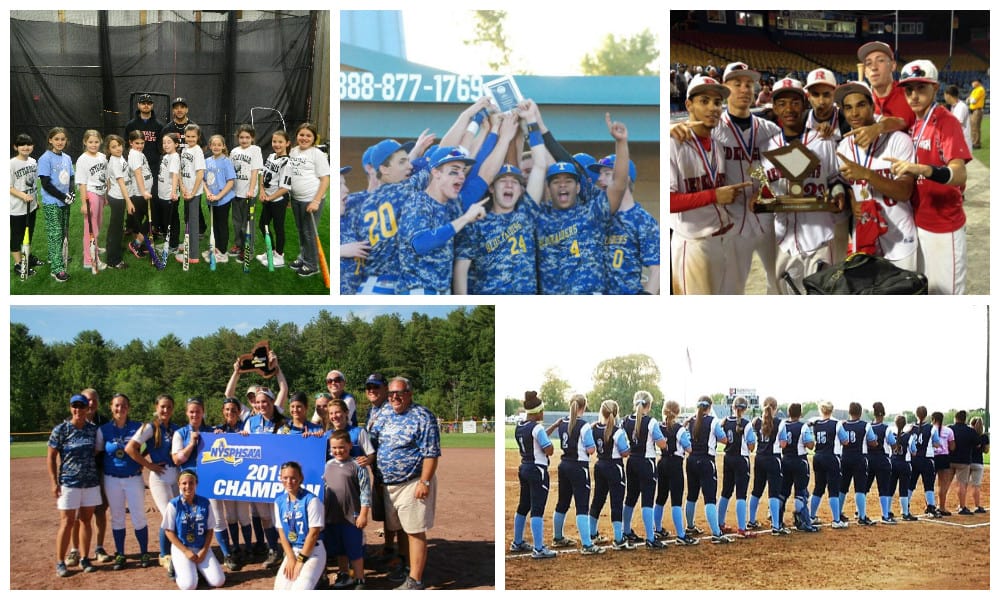
Oct 29, 2018 | Baseball, Other, Softball
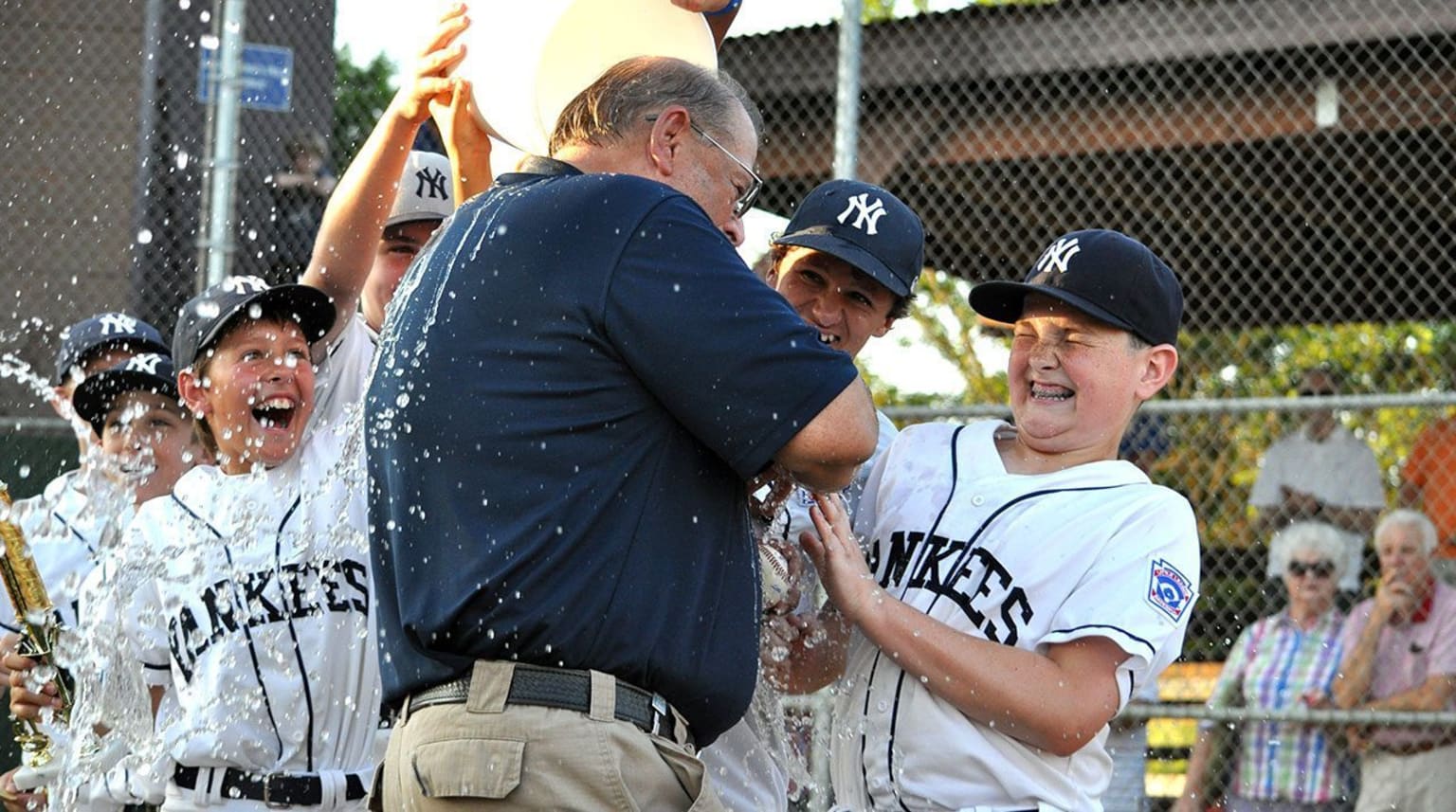
Pop quiz. What was the title of Hall of Fame Major League Manager, Earl Weaver’s autobiography?
The answer: “It’s What You Learn After You Know It All That Counts.”
That bit of wisdom was good enough to guide the World Series Championship manager of the Baltimore Orioles, and it’s motivation for you to continue your own coaching education.
Whichever combination of training, from district, state, or region clinics; Little League University; or other live and online options, that you may choose, pursuing continuing education is crucial to your enjoyment and effectiveness as a coach.
Continuing education keeps the coaching experience fresh for you.
Baseball and softball are endlessly fascinating sports. The deeper and more nuanced your knowledge of the games, the more they fascinate. If you have the slightest twinge of burnout or a sense that your coaching has become a paint-by-numbers exercise, a coaching course or clinic will quickly remind you of what you love about the sport and why you started coaching in the first place.
Education can re-shape your view of your role as a coach.
The wide variety of courses and clinics available cover some combination of fundamental skills, game strategy and tactics, and sports psychology. The best ones not only impart that knowledge to you, but also teach you exactly how to pass that knowledge along to players.
Once you learn how to share knowledge, not just possess it, you can have major impact on your Little Leaguers®, both as players and as people. Empowered as an educator yourself, you gain the intrinsic reward of helping children. And, once those kids see you as a proven provider of baseball or softball information that helps them improve, they are that much more likely to listen to you about life lessons (which are even more rewarding to share than sports lessons).
You gain confidence.
Even if you take just a few tidbits from your continuing education, you now know that you know more than you did before. The fact that you went out of your way to improve will make you more decisive in practices and games and in building your team culture. That sense of confidence can exude leadership that goes a long way with players, their parents, fellow coaches, and even umpires.
You improve.
That may seem obvious as a reason to pursue continuing education. But let’s face it, plenty of people are satisfied with whatever level they have achieved and many others feel they cannot (or need not!) improve.
Nothing will invigorate your coaching like re-investing time and energy into being the best you can possibly be, and then seeing actual, measurable improvement in your coaching, in player performance, and in how you help players develop as people.
You demonstrate to players and their parents your commitment to improving.
That can’t help but rub off on your players. When they know you have worked to improve, they are more likely to work to improve. Parents who see you having that effect on their kids will become friends and allies for life, and more of your community will gain from the idea that “It’s What You Learn After You Know It All That Counts.”















